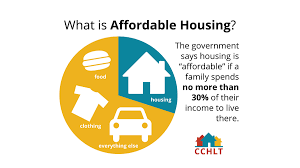Housing/Shelter
Here are some best practices for developing a comprehensive housing/shelter plan in a community:
- Conduct thorough research and analysis of the housing situation:
- Identify the current and projected housing demand, including demographic data on the population and their housing needs.
- Assess the current housing stock, including the quality, affordability, and accessibility of the housing.
- Evaluate the impact of current housing policies and programs, and identify areas for improvement.
- Engage the community and stakeholders in the planning process:
- Encourage active participation and input from community members, particularly those who are most affected by the housing situation.
- Work with stakeholders such as government agencies, developers, non-profits, and advocacy groups to build a broad coalition of support.
- Foster partnerships and collaborations between different groups to maximize resources and achieve shared goals.
- Develop clear and achievable goals and objectives:
- Identify the most pressing housing needs and prioritize them accordingly.
- Establish realistic, measurable, and time-bound goals and objectives for addressing those needs.
- Ensure that the goals are aligned with the broader vision and values of the community.
- Create a comprehensive and integrated housing strategy:
- Develop a multi-faceted and integrated approach that addresses a range of housing-related issues, such as affordability, accessibility, quality, and choice.
- Consider the interconnections between different aspects of the housing system and develop strategies that address those connections.
- Incorporate a range of policy and program options, such as incentives for affordable housing development, rental assistance, and homeownership programs.
- Foster a supportive policy and regulatory environment:
- Develop and implement policies and regulations that promote affordable, accessible, and high-quality housing.
- Review and revise existing policies and regulations to remove barriers to housing development and to ensure that they align with the goals of the housing plan.
- Advocate for additional resources and funding to support the implementation of the housing plan.
- Monitor and evaluate progress regularly:
- Regularly track progress towards the goals and objectives of the housing plan.
- Evaluate the effectiveness of the strategies and programs, and make changes as necessary.
.

.

.

.

.